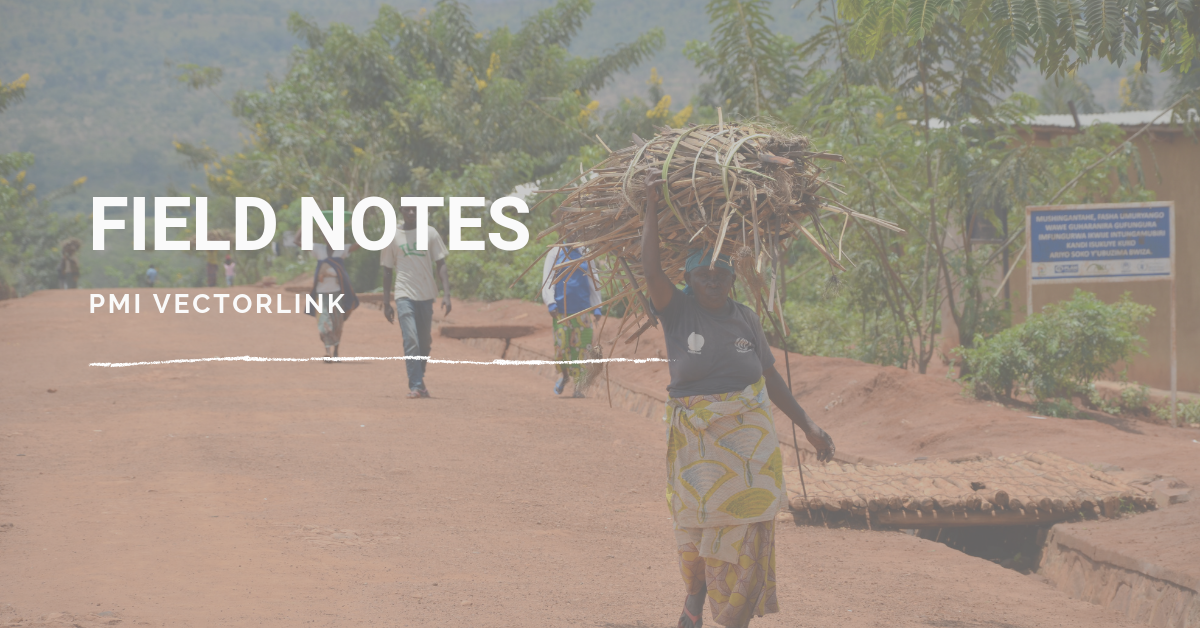 This week’s Fist Bump goes out to VL Burundi for their success in completing VL’s first remote training of trainers (TOT) for ITN durability monitoring. The remote TOT sessions, which were necessary because of COVID-19, provided the NMCP and in-country VL team with the skills, knowledge and resources required to lead a successful in-person fieldworker training and ensure data collection can begin without additional delays. Data collection was previously delayed due to the 2020 Burundi Presidential Elections.
This week’s Fist Bump goes out to VL Burundi for their success in completing VL’s first remote training of trainers (TOT) for ITN durability monitoring. The remote TOT sessions, which were necessary because of COVID-19, provided the NMCP and in-country VL team with the skills, knowledge and resources required to lead a successful in-person fieldworker training and ensure data collection can begin without additional delays. Data collection was previously delayed due to the 2020 Burundi Presidential Elections.
The TOT, which took place July 15-17th, was conducted by VL’s Justin Rahariniaina (PSI Regional Research Manager) and supported by Emily Kitts (PSI Associate Technical Advisor) and Stephen Poyer (PSI Sr Research Advisor), and included 10 participants from VL Burundi, WHO and USAID. Of the 10 participants trained, six went on to facilitate the in-person fieldworker training this week, with on-call support via WhatsApp by VL HQ staff. Participants from WHO and USAID joined as members of the study steering committee to observe progress.
VectorLink teams in eight other countries will rely on remote TOT as well. The feedback and lessons learned from Burundi is helping to strengthen future trainings, which are currently being or soon will be held in Liberia, Ghana, Niger and Burkina Faso.
Durability monitoring training is highly participatory, with many individual and small group exercises, and in-person training is a must. Participants learned how to evaluate ITNs and how to master the electronic questionnaire used during data collection. For the TOT, practical exercises were adapted to run virtually so that participants would get a feel for how the exercises would run during fieldworker training and time was spent discussing how to implement fieldworker training. The TOT covered: durability monitoring rationale and study design, study adaptations for COVID-19 (keeping field teams and study participants safe during fieldwork), household sampling, ITN hole assessment and questionnaire implementation.
ITN durability monitoring reveals how long ITNs remain in good condition for use, providing effective vector control against mosquitoes. Prior to this training, the NMCP in Burundi had not fielded an ITN durability monitoring study. The December 2019 ITN mass campaign provides the opportunity for a PMI VectorLink-supported study to evaluate ITN survival, physical durability, and bio-efficacy in collaboration with the NMCP. Based on entomological results from PMI VectorLink Burundi, PermaNet 3.0 PBO-synergist ITNs were distributed in communes of Kirundo Province in northern Burundi, while households in the rest of the country received Yorkool pyrethroid ITNs. This study will monitor cohorts of ITNs in neighbouring communes of Kirundo Province (PermaNet 3.0) and Myinga Province (Yorkool). Data from the study will provide the NMCP, PMI and malaria partners with valuable estimates regarding the estimated median life and physical performance of these ITN brands and how they vary across two sites.
Kudos to all the participants and a shout out to trainers who led the fieldworker training this week (July 20 – July 24): Loic Nsabimana (Research and M&E Manager), Jérome Nzohabonayo (Research Officer), Oscar Ntakarutimana (Sr Coordinator, Malaria Prevention); VL Burundi COP Virgile Gnanguenon (COP); NMCP’s Vector Control Unit Manager Anatolie Ndayishimiye and NMCP M&E Unit Manager Dr Juvénal Manirampa.


